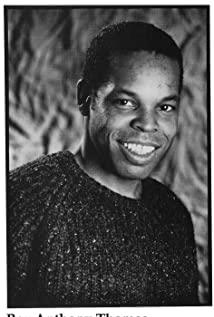Faced with a blank piece of manuscript paper, how does a screenwriter start writing?
He first tried to remember from a picture-
The author first remembered a picture he saw, there was a castle on an island. Consider this picture, a world completely cut off from the world, a castle like a prison. What will happen in this world? What is this house for? Who is locked in there? The author thinks that this is a mental hospital, where there are perverted Frankensteins, crazy human experiments, and weak resistance.
The scene has been thought out, and the next step is the characters.
We need a hero, what kind of hero is this? The answer: a protagonist with desire and action. The protagonist is actually the embodiment of desire, the executor of action. So if the protagonist is a patient on the island, then his desire is to escape; that is, if the protagonist is a visitor from outside the island, then his desire is to reveal the truth. The protagonist can't possibly be a doctor on the island, because without an outside motivating event, it's hard for the audience to understand why he chose to cast the shadows at the beginning of the movie.
Wait, children only do multiple-choice questions, adults do. Our author chose to appear as an off-island visitor to reveal the truth here as a policeman; but in fact he was a real patient on the island. Thinking of this, the author has already thought about the climax of the whole story: he is not a policeman, he is a patient.
Why did the author choose two completely different identities when choosing the protagonist? The answer is: because art is known for its abundance. If a man looks like a policeman, he is a policeman; if a man looks like a sick man, he is a sick man. Then this is life, not art. Life is life and art is art. The author is well aware that when setting characters, they must be rich and layered, so they must choose all. As for how the two identities convince the audience, it is a matter of logic. A good screenwriter always solves the creative gap first, because the credibility of logic can always find a way.
The identity of the character already exists, what about the externalized desire and action of the character?
After a brief period of triumph, the author asked the question, "Why does the patient believe that he is a policeman?" Why doesn't he think he is a doctor or a prison guard? It can't be insiders like doctors and prison guards, and the reason is still "why did he choose this moment to give up the dark and go to the light"? Therefore, it must be an outsider, which also gives the audience a perspective of a substitute.
Movies externalize emotions, and for the audience, empathy means the success of the movie. So every screenwriter is trying to figure out how to control the emotional input of the audience. There are two ways: one is empathy, the identification with the protagonist, and the other is credibility, our willingness to suspend distrust. Credibility is the premise of empathy. For a world "Lonely Island Madhouse" that our audience has never experienced, it is obviously easier for the audience to trust the perspective of outsiders, so the author chose outsiders.
As for why the outsider is a policeman, not a delivery man, or a boatman, a government official, etc., this is because the desire of the police is more obvious and strong, and all audiences understand that the police's mission is to reveal the truth, and it is difficult for us I believe how a boatman with a sense of justice is unswerving in upholding justice. In real life, there are very few people with strong willpower. Most people give up when they say they give up, and they also find many reasons such as "sea, sky and sky" and "be nice to yourself". But in a play, the protagonist must be a man of will. There are two reasons for this. First, what is lacking in reality and what the film needs to be made. If the story in the movie is actually happening, then it loses the value of existence. For example, if there is a lack of "sweet pet" love in reality, then online dramas must be sweet. If real life is sweet, then you might as well abuse it. The second reason is that the movie is only 120 minutes long. If the protagonist's willpower is not firm, he wants to do this for a while, and then gives up to do other things, then the whole structure will collapse, and the audience will continue to play. So the author thinks he needs a strong-willed police officer.
The protagonist as a cop knows exactly what he wants, a very simple, clear, conscious desire - to reveal the truth. Since the author first thought of the picture "there is a mental hospital on an island", this picture means - perverted Frankenstein, crazy human experiments, weak resistance. Then the desire of the police is to reveal the facts of the crime here. The author pulls the protagonist aside and whispers in his ear, what exactly do you want to do? The protagonist clearly told him, "This is like a concentration camp, where tragic experiments are being done in isolated places. Our police go deep into the tiger's den to help justice." The author is firm, I have to create a scene at the beginning, Let the audience mistakenly think that the lone wolf entered the tiger's den.
With externalized desires and actions, what about internalized desires and actions?
The author knows that any protagonist has an unconscious desire in addition to an explicit desire. Although the protagonists are unaware of their subconscious needs, the audience is aware of their inner contradictions. That is to say, as "the art of conflict", in addition to the external desire to fight against others, there is also an unconscious internal desire to fight against oneself. A multi-dimensional protagonist, his conscious and unconscious desires are often contradictory, because if the desire to be realized in his subconscious and the desire to be realized in reality are exactly the same, then this subconscious setting is meaningless.
Explains why the protagonist has two contradictory desires, but does not explain why the protagonist has two desires instead of one. First, art is known for its abundance. If the characters have only one level, then the viewing degree is not enough. Secondly, in real life, the characters are also complex and their hearts are different. The characters in the play are like this, and the audience's sense of substitution will be more credible.
The author began to think, what is the subconscious desire of the protagonist? What desires can contradict actual desires? Recall that the author set the protagonist a dual identity "patient, police" at the very beginning, so his dual desires also naturally come from dual themes. A policeman knows he is a policeman, but a patient does not know he is a patient. Therefore, the desire of the patient is naturally the subconscious of the protagonist. Where does the patient's desire come from? The author opened the news materials of recent psychopaths and found that a psychopath had killed his three children.
Well, the material is there, and the author starts to move flowers and trees: deeply traumatized in World War II, the protagonist drinks heavily and neglects and ignores his wife who suffers from severe depression. In order to attract his attention, the wife sets fire to the city apartment, the family moved to a lakeside cottage. After moving, the protagonist still ignores his wife. When he returns home one day, the protagonist finds that his wife has drowned three children in the lake next to the house. He was distraught and lost his mind, or he was also trying to relieve his suffering wife. He shot his wife in the abdomen, causing her death, and set fire to his house. He also became mentally ill and became a schizophrenic. Psychiatric patients with schizophrenia and extreme delusions.
With the scene characters, we also have the master idea
So far, we have scenes, characters, and the characters contain double identities, as well as double desires. After clarifying these, the master thought also has "people who have done unforgivable wrongs should live like a monster or die as a good person" and in order to increase the audience's empathy for his mistake in killing his wife and children, Deliberately entered the history of Nazi concentration camps. The addition of this history also makes the theme even stronger: "War is useless, because either side who wins or loses will become a lunatic". The whole film has been sublimated from a brain-burning suspense theme to a post-war anti-war theme of whipping war.
There are two concepts underpinning the entire creative process: the first is the premise, the idea that inspires the writer's desire to create; the second is the master idea, the ultimate meaning of the story expressed through the actions and aesthetic emotions in the climax of the final act. Mastering ideas help writers make key choices about what is and isn't appropriate in your story, what should be kept, and what must be removed. But notice that it is the story that tells you its meaning, not you imposing meaning on it.
The controlling idea of a complete story must be able to be expressed in one sentence. "A person who has done unforgivable wrongs should live like a monster, or die as a good person." When the writer first has a premise, he then uses his imagination. After the plot unfolds, you can explore the things that flash in your mind. All possibilities, find this thought. In many cases, the more you structure your story around a clear idea, the more meaning the audience will find in the film. On the contrary, the more ideas you try to cram into a story, they squeeze each other and eventually the film collapses without expressing anything.
In the story, the pros and cons of the master idea will be contested repeatedly throughout the film, and the tension will continue to increase until the climax of the battle between the two sides to decide the winner. This is the rhythm of ideas and opposing ideas, opposing each other, that is the most fundamental thing in our art. When creating a story mode, extreme care must be taken to give both sides the same firepower. Don't take sides in the debate. If you are clearly on the side of the story, you may be pushing yourself down a didactic path. Your film will become a dissertation because you want to change the world with one film. The reunion at the end of "Why Home" is actually the hypocrisy of the screenwriter, which can neither increase credibility nor benefit the real world.
Authors know where to start and how to end before they start writing. So now put the protagonist at the starting point, the goal he wants to achieve at the end, and then there are all conceivable obstacles along the way.
With the master mind, let's look at the climax
The climax takes place in the lighthouse, when the truth is revealed, Dr. Cowley is presenting the facts and reasoning that there is no cruel Nazi laboratory here, Ted is his real name Lettis, and the imaginary Rachel is his wife's name. The combination of letters... At this time, the protagonist has no way to retreat. He picked up the pistol on Dr. Cowley's desk and fired a shot at Dr. Cowley. In the hallucination, he seemed to see the bullet shot through Cowley. His chest was overflowing with blood! When he came to his senses again, he found that Cowley was safe and sound, and then he realized that his gun was actually a toy gun.
The truth is revealed, the protagonist can't hold on anymore, and his deep love for the child gushed out. His eyes were full of tears, and his eyes instantly became extremely soft and extremely sad from the previous hysteria. He stretched out his hand and tried. Touching the photo of his beloved daughter...
The author looks at this climax and asks himself, what value is brought into my protagonist's world as a result of this climax action? Then look back from this climax and ask yourself, what is the main reason, motivation and means for this value to be brought into his world? The sentences made up of the answers to these two questions are my controlling thoughts.
At the end of the story, the doctor handed the patient a cigarette, and after the patient finished smoking, he said to him, "We are going to leave here, Chuck, and go back to the mainland. No matter what we do here, it is definitely not a good thing. Hearing this, the doctor's heart is completely heartbroken. It's getting cold, so many efforts, but still failed... The last chance of the inspection committee is gone, and the patient Letis can only undergo lobotomy. The doctor looked at the distant The deans shook their heads sadly.
If it ended like this, it would be too unleveled, so the author changed it to, the patient has recovered, knew and believed all the truth, but he chose to be a good person who lost his memory and was blank. After he was cured by the doctor, he chose to give up his memory, be a good person with a blank, and let his past die completely.
To sum up: use the picture to build a scene with narrative significance, select the characters in this scene, formulate dual identities for the characters, formulate dual desires for the characters, and choose the master idea of the story according to the characters' desires. It is a round-robin contest of positive and negative thoughts, and the winner is decided at the climax moment, leaving the audience with a long aftertaste.
How to allow yourself to dream in a free and orderly way is the fundamental task of all playwrights.
View more about Shutter Island reviews











